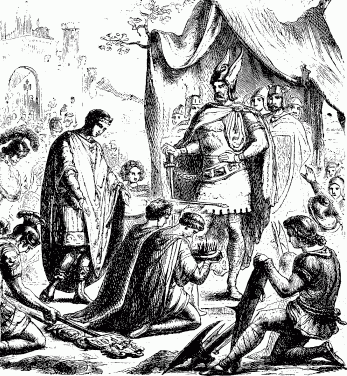Because I have now started clinical rotations for this academic year, the number of posts I can write will consequently be curtailed and even haphazard in frequency. I thank my readers for their support in making this project worth the effort. Please continue to visit and you can keep track by bookmarking or using your favourite RSS application.
While going through my weekend net readings, I was simply delighted by this very engaging article from the Verge that features the cofounder of Microsoft, Paul Allen's thoughts on machine learning and its potential for impacting our lives. But to really truly understand the nature of what exactly we're dealing with here, I wish to touch on a couple of other articles that serve to augment Paul Allen's thoughts.
Machine learning has much to do with the famous English mathematician, Alan Turing. His 1950 seminal paper titled 'Computing Machinery and Intelligence' is still cited today. In this BBC news feature from earlier this month, I discovered to my surprise (surprise because I am, of course, NOT a learned computer scientist, only a humble knowledge harvester/doctor) that Turing had tried to refute the some of the claims put forth by an equally famous predecessor, Ada Lovelace, regarded by some history's first computer programmer. It appears Ms. Lovelace was of the opinion that computing machines can never give us surprising insights. They can only put forth what we expect them to. While this seems straightforward to many of us, it didn't ring true to Mr. Turing. He proposed that if the computational power of computers continue to increase with time, what's to stop them from becoming as sophisticated as the human brain and (like the aforementioned organ) come up with some surprising ideas of their own.
Even today, it is argued that even Google's autocomplete function can sometimes suggest insightful queries that we, the searchers, might never have thought to ask. All this brings us back to Paul Allen; although the man is a supporter of artificial intelligence development and has a good number of institutions under his name which are doing just that, he denies the idea that computers will soon (as in less than a century from now) match or even outstrip the computing power of their creators' brains, the so called 'Singularity event'. He offers several points to support his rather surprising stance.
In good academic fashion, Ray Kurzweil, the originator of the term 'Singularity', offers a response to Paul's refutation, citing several counter points and also the possibility that his opponent may have misunderstood the crux of the problem. It is not my job to determine who is right and who is wrong. I'll leave that to you to decide. But what is agreed upon is that computers are indeed getting more powerful everyday. We are promised opportunities (like intelligent space probes that will explore the galaxy for us) and threats (like autonomous drones that will decide for themselves whether to kill or not). As a result, the future seems more murky and wonderful than ever before.



